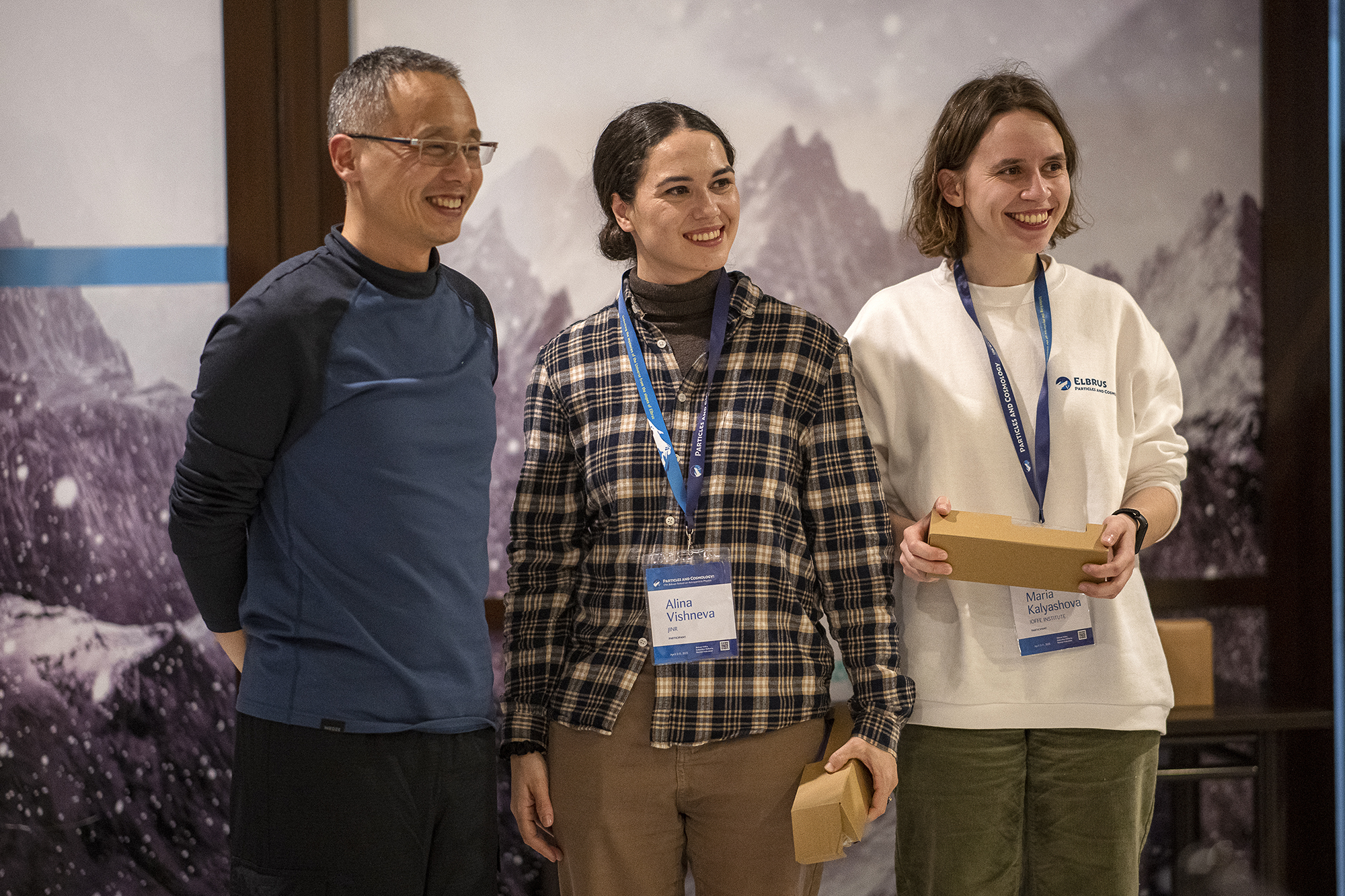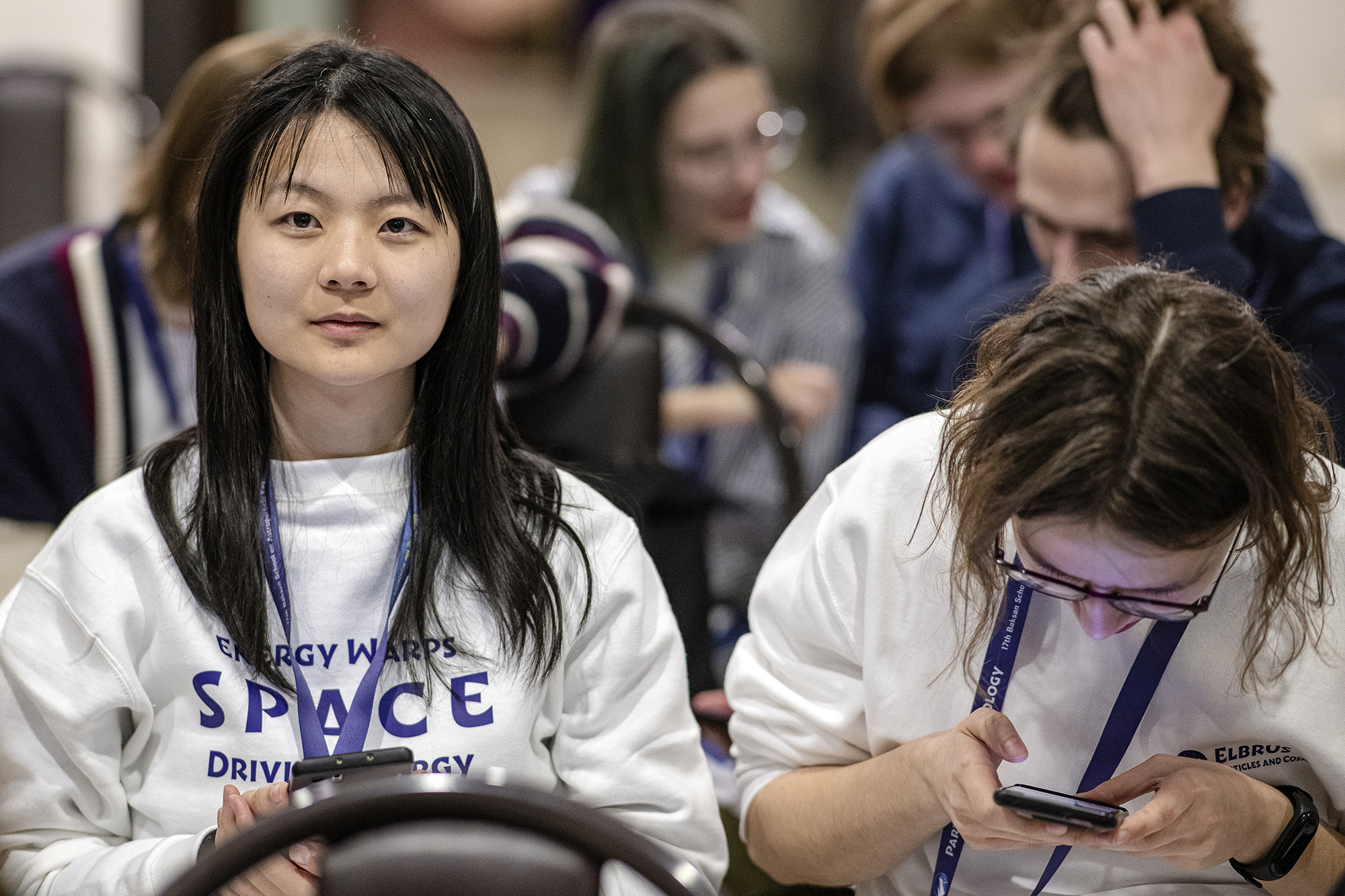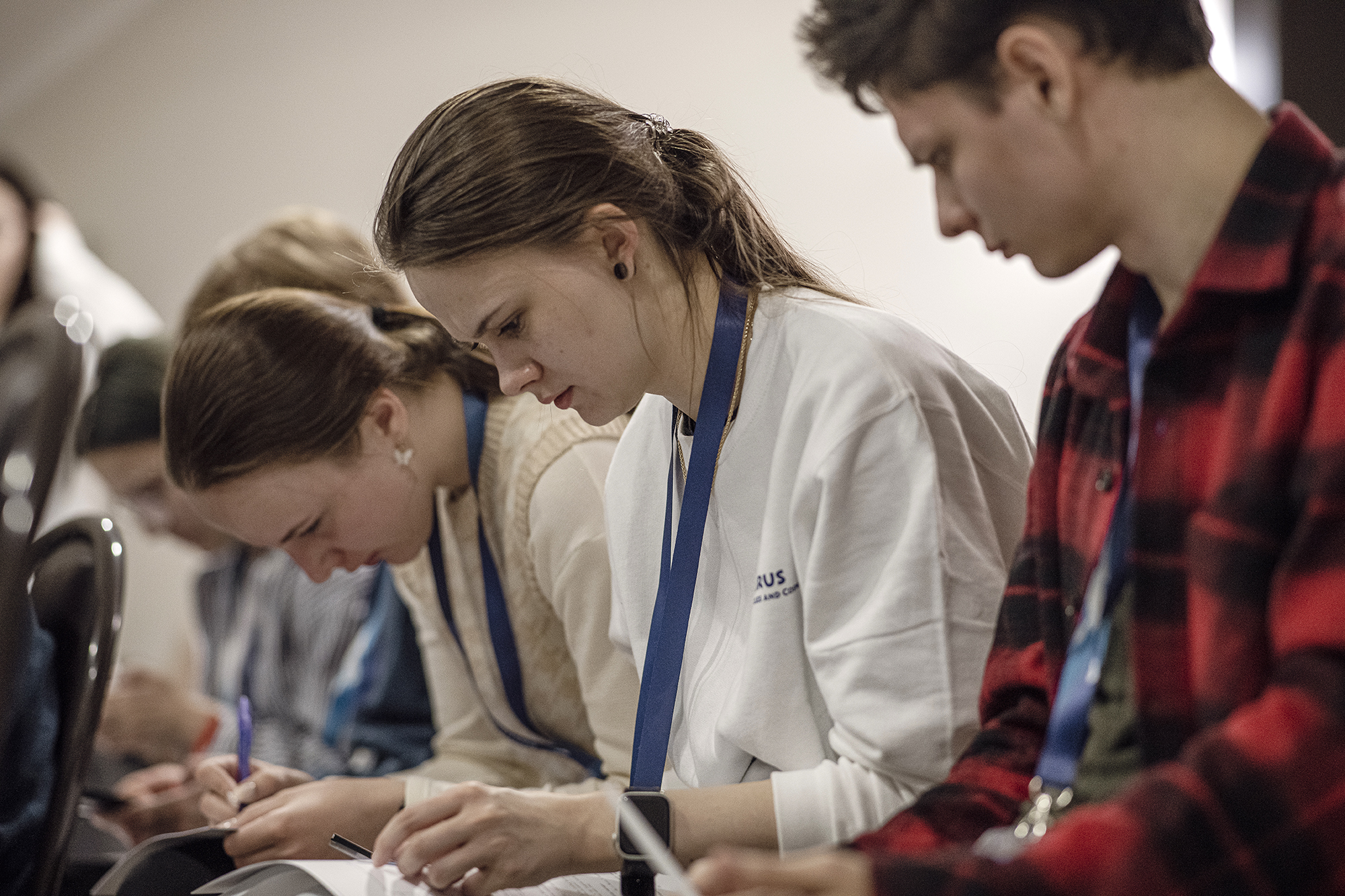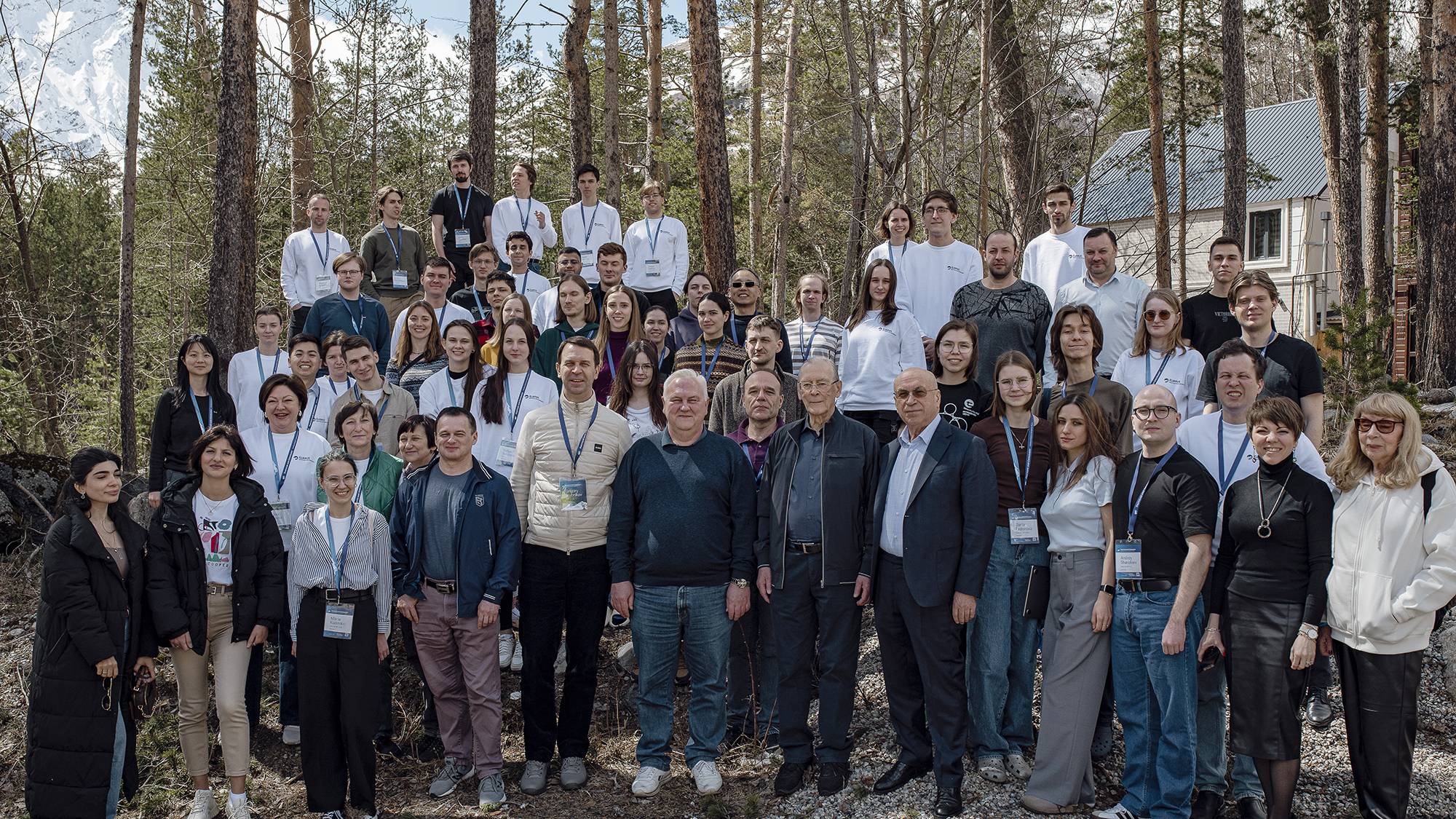Particle astrophysics school finished near Mount Elbrus
News, 24 April 2025
On 3–11 April 2025, the 17th “Particles and Cosmology” Baksan International School of Astrophysics took place in Terskol village (Kabardino-Balkaria, Russia). The event covered topical issues of astrophysics and cosmology, including experimental and theoretical aspects of modern studies. The event was organized by the Joint Institute for Nuclear Research, the Institute for Nuclear Research of the Russian Academy of Sciences (INR RAS), and Berbekov Kabardino-Balkarian State University (KBSU).
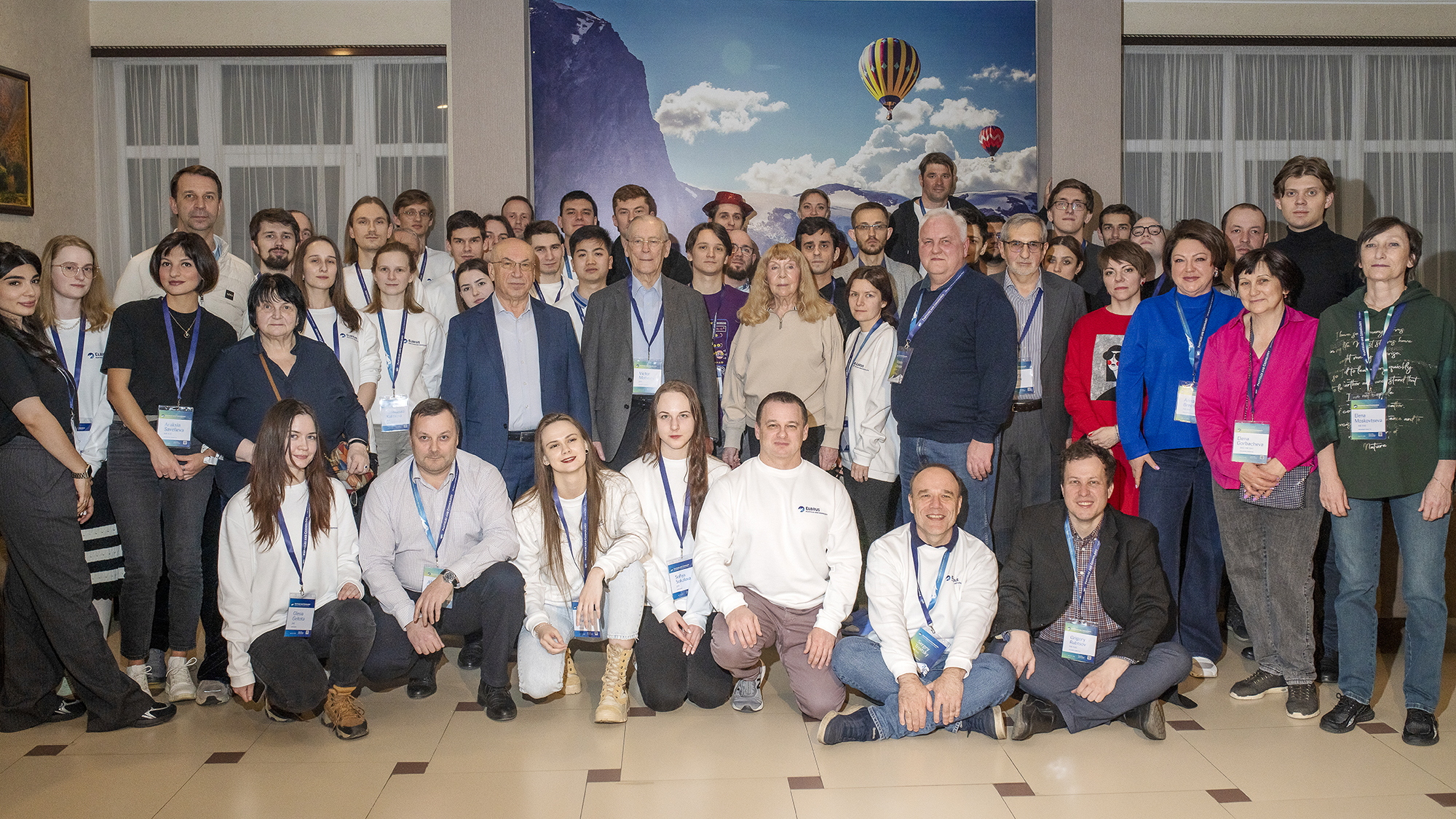 Photo by Elena Sokolova (INR RAS)
Photo by Elena Sokolova (INR RAS)
The Particles and Cosmology schools have a rich history: previous events took place every two years until the early 2000s. After being paused for 15 years, the Baksan School was resumed in 2019, which was an important event for the international astrophysical community. The focus of the new programme was on the in-depth study of specific scientific areas, the topics of which were to be updated every two years. However, the COVID-19 pandemic disrupted the plans, making it impossible to return to the announced schedule.
In 2025, more than 80 students of the school gathered again near Mount Elbrus to learn from the experience of the world’s leading astrophysics experts. The programme included four lecture courses, practical and discussion sessions, several stand-alone lectures, group projects by participants, poster sessions, and an excursion to the underground laboratories of the INR RAS Baksan Neutrino Observatory.
“In 2018, Academician Valery A. Rubakov asked me to bring the Baksan School back, and I was ready to do it. Back in 2019, Sergey Troitskiy and I had already conducted the first “new” Baksan School, which proved to be very successful. Now, in our time of scientific competition and constant lack of resources, it is especially important to set priorities correctly. Astrophysics, cosmology, and neutrino physics are areas where we can gain completely new knowledge. But this requires young employees, and such schools are the key to their education,” Co-Chair of the school’s Organizing Committee, Deputy Director of the Laboratory of Nuclear Problems at JINR Dmitry Naumov said.
Of particular interest at the 17th International Baksan School were practical lessons dedicated to reconstructing events in the NOvA Experiment and working with photomultipliers. Lectures on genetics and volcanology received positive feedback. One of the school’s most significant activities was the Science Battle on the future of particle physics, which was attended by two corresponding members of the Russian Academy of Sciences, Director of the Laboratory of Theoretical Physics at JINR Dmitry Kazakov and INR RAS Chief Researcher Sergey Troitsky.
The highlight of the programme was the scientific projects of the participants. The school’s students, divided into ten teams, competed in solving relevant tasks covering a wide range of topics, from the optimisation of neutrino detectors to the concepts of Moon colonisation, the use of the Earth’s atmosphere as a detector of ultrahigh-energy particles, and astrophysical phenomenon analysis. All the teams successfully completed their projects, presenting informative talks and scientific presentations.
The Directorate of the Joint Institute for Nuclear Research were actively engaged in the Baksan School. Representatives of local governments paid special attention to the event as well, visiting the school twice and presenting commemorative awards to its organizers. The programme of the event concluded with an awarding ceremony for the students and a concert by the creative team of Kabardino-Balkarian State University.
“The 17th Baksan International School of Astrophysics is a unique experience combining deep scientific knowledge and inspiration from the majestic nature of the Caucasus. As a participant, I greatly appreciate the opportunity to learn from leading experts in particle physics and cosmology and broaden my horizons through informative lectures and active discussions. I am particularly grateful for meeting colleagues who share a passion for science. I sincerely thank the organizers for their attentiveness and enthusiasm, which made the school unforgettable,” a participant of the school and a DLNP JINR junior researcher Truong Hoai Bao Phi said.
